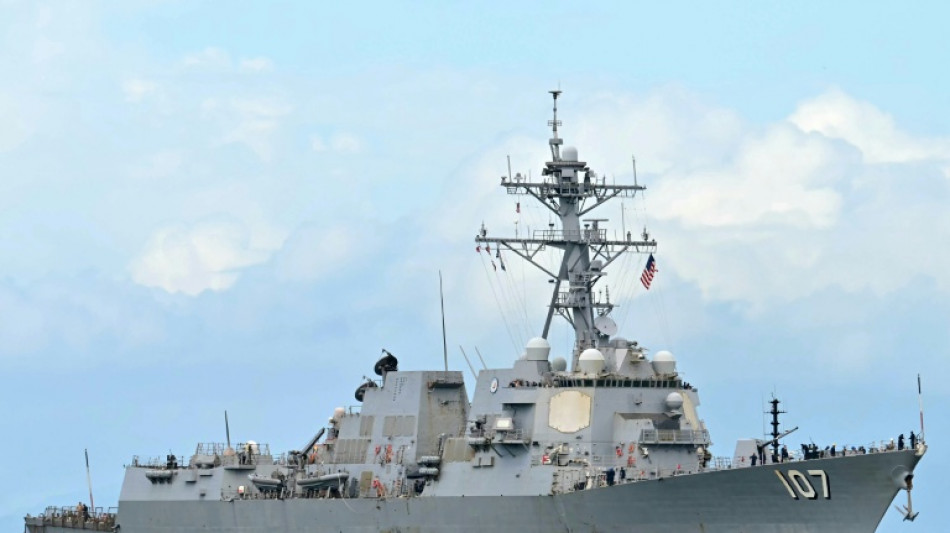
-
 Cunningham leads Pistons past Celtics, Nuggets outlast Rockets
Cunningham leads Pistons past Celtics, Nuggets outlast Rockets
-
10-year-old girl, Holocaust survivors among Bondi Beach dead
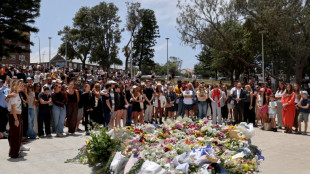
-
 Steelers edge towards NFL playoffs as Dolphins eliminated
Steelers edge towards NFL playoffs as Dolphins eliminated
-
Australian PM says 'Islamic State ideology' drove Bondi Beach gunmen
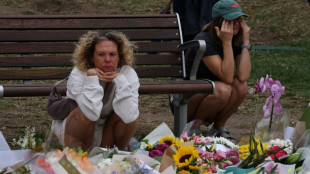
-
 Canada plow-maker can't clear path through Trump tariffs
Canada plow-maker can't clear path through Trump tariffs
-
Bank of Japan expected to hike rates to 30-year high
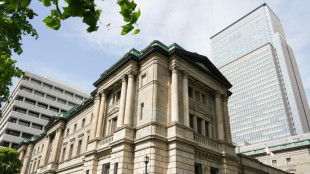
-
 Cunningham leads Pistons past Celtics
Cunningham leads Pistons past Celtics
-
Stokes tells England to 'show a bit of dog' in must-win Adelaide Test

-
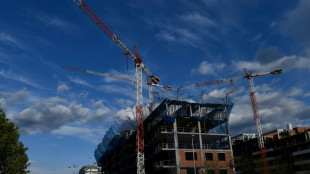 EU to unveil plan to tackle housing crisis
EU to unveil plan to tackle housing crisis
-
EU set to scrap 2035 combustion-engine ban in car industry boost

-
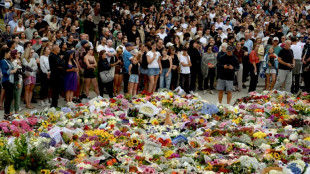 Australian PM visits Bondi Beach hero in hospital
Australian PM visits Bondi Beach hero in hospital
-
'Easiest scam in the world': Musicians sound alarm over AI impersonators

-
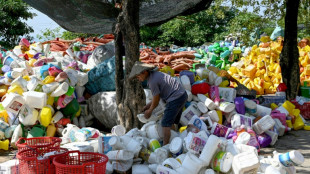 'Waiting to die': the dirty business of recycling in Vietnam
'Waiting to die': the dirty business of recycling in Vietnam
-
Asian markets retreat ahead of US jobs as tech worries weigh
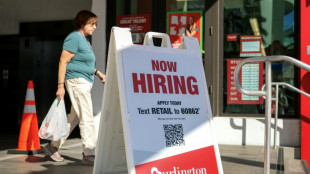
-
 Security beefed up for Ashes Adelaide Test after Bondi shooting
Security beefed up for Ashes Adelaide Test after Bondi shooting
-
Famed Jerusalem stone still sells despite West Bank economic woes
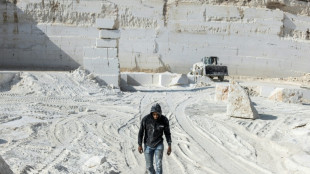
-
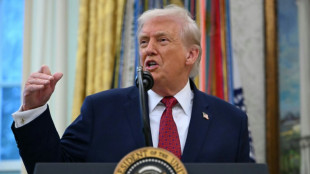 Trump sues BBC for $10 billion over documentary speech edit
Trump sues BBC for $10 billion over documentary speech edit
-
Chile follows Latin American neighbors in lurching right

-
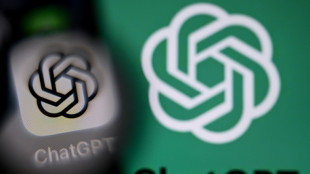 Will OpenAI be the next tech giant or next Netscape?
Will OpenAI be the next tech giant or next Netscape?
-
Khawaja left out as Australia's Cummins, Lyon back for 3rd Ashes Test

-
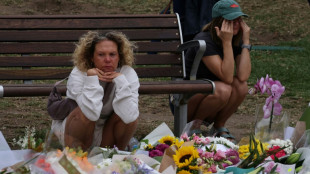 Australia PM says 'Islamic State ideology' drove Bondi Beach shooters
Australia PM says 'Islamic State ideology' drove Bondi Beach shooters
-
Scheffler wins fourth straight PGA Tour Player of the Year

-
 Security beefed up for Ashes Test after Bondi shooting
Security beefed up for Ashes Test after Bondi shooting
-
Wembanyama blocking Knicks path in NBA Cup final

-
 Amorim seeks clinical Man Utd after 'crazy' Bournemouth clash
Amorim seeks clinical Man Utd after 'crazy' Bournemouth clash
-
Man Utd blow lead three times in 4-4 Bournemouth thriller

-
 Stokes calls on England to 'show a bit of dog' in must-win Adelaide Test
Stokes calls on England to 'show a bit of dog' in must-win Adelaide Test
-
Trump 'considering' push to reclassify marijuana as less dangerous
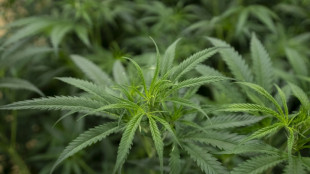
-
 Chiefs coach Reid backing Mahomes recovery after knee injury
Chiefs coach Reid backing Mahomes recovery after knee injury
-
Trump says Ukraine deal close, Europe proposes peace force
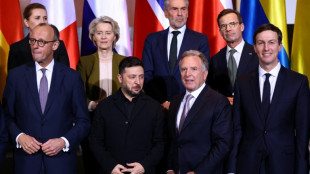
-
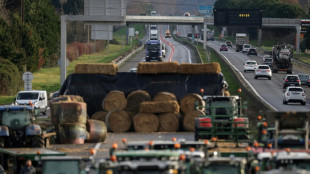 French minister urges angry farmers to trust cow culls, vaccines
French minister urges angry farmers to trust cow culls, vaccines
-
Angelina Jolie reveals mastectomy scars in Time France magazine

-
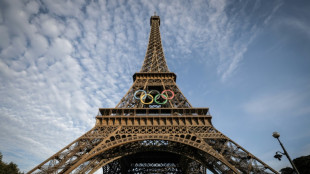 Paris Olympics, Paralympics 'net cost' drops to 2.8bn euros: think tank
Paris Olympics, Paralympics 'net cost' drops to 2.8bn euros: think tank
-
Chile president-elect dials down right-wing rhetoric, vows unity
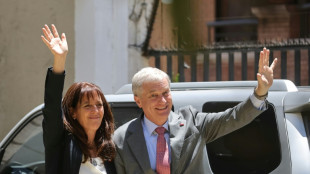
-
 Five Rob Reiner films that rocked, romanced and riveted
Five Rob Reiner films that rocked, romanced and riveted
-
Rob Reiner: Hollywood giant and political activist

-
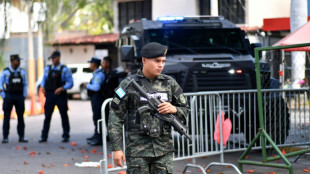 Observers say Honduran election fair, but urge faster count
Observers say Honduran election fair, but urge faster count
-
Europe proposes Ukraine peace force as Zelensky hails 'real progress' with US
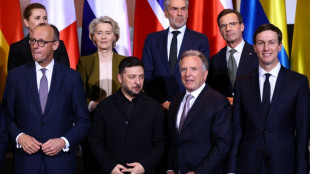
-
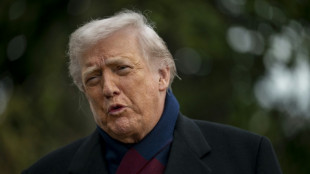 Trump condemned for saying critical filmmaker brought on own murder
Trump condemned for saying critical filmmaker brought on own murder
-
US military to use Trinidad airports, on Venezuela's doorstep
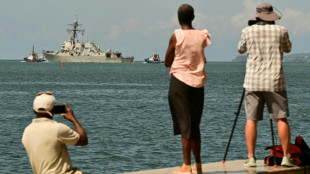
-
 Daughter warns China not to make Jimmy Lai a 'martyr'
Daughter warns China not to make Jimmy Lai a 'martyr'
-
UK defence chief says 'whole nation' must meet global threats
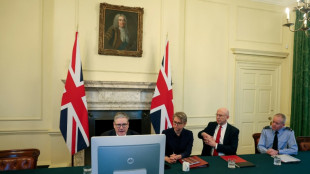
-
 Rob Reiner's death: what we know
Rob Reiner's death: what we know
-
Zelensky hails 'real progress' in Berlin talks with Trump envoys

-
 Toulouse handed two-point deduction for salary cap breach
Toulouse handed two-point deduction for salary cap breach
-
Son arrested for murder of movie director Rob Reiner and wife

-
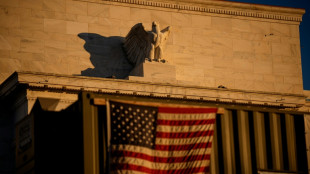 Stock market optimism returns after tech selloff but Wall Street wobbles
Stock market optimism returns after tech selloff but Wall Street wobbles
-
Clarke warns Scotland fans over sky-high World Cup prices

-
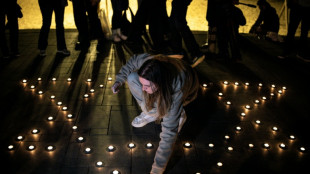 In Israel, Sydney attack casts shadow over Hanukkah
In Israel, Sydney attack casts shadow over Hanukkah
-
Son arrested after Rob Reiner and wife found dead: US media


As US blows up drug boats, Venezuelan oil sets sail
While the American military blows up boats it claims are transporting drugs from Venezuela, observers say tankers shipping Venezuelan oil in violation of a US embargo continue to navigate the very same Caribbean waters undisturbed.
Venezuelan President Nicolas Maduro has claimed a massive US military deployment within striking distance of his country was part of a plan to overthrow him and "steal" his country's oil under the ruse of an anti-drug operation.
Has the perceived US military threat affected crude exports from Venezuela, the country with more of the "black gold" than any other?
- Business as usual -
Apart from ships used by US energy giant Chevron -- which has a temporary license to extract Venezuelan oil -- experts say the Caribbean also plays host to so-called "shadow tankers," which transport sanctioned or illicit oil.
"The shadow tankers circulate without problem. Just like before the American deployment. The Americans cannot not see them. They allow them to circulate," an expert in the sector told AFP on condition of anonymity.
Elias Ferrer, founder of the Venezuela-based Orinoco Research group, added "the shadow tankers, sanctioned ships, continue to come and go" as before -- feeding a voracious market -- mainly in China.
Ferrer believes the United States likely does not want to interfere with these ships "as this would be equivalent to a declaration of war" in a time of strained ties with potentially formidable military foes such as China.
US strikes on alleged drug-carrying boats in the Caribbean and eastern Pacific -- in violation of international law according to human rights experts -- have so far claimed at least 57 lives.
- Production up -
Hastened by a crushing US embargo on crude exports in response to Maduro's disputed 2018 reelection, production in the country plummeted from three million barrels per day (bpd) in the early 2000s to below 400,000 bpd by 2020.
Then-president Joe Biden eased sanctions in 2022 as the world faced an energy crisis sparked by Russia's invasion of Ukraine. But he reinstated them after Maduro was widely accused of stealing his second re-election in a row, in 2024.
Chevron was allowed to continue extraction, but in May of this year, Trump ordered the company and others to wind up operations in Venezuela.
Then in July, Maduro announced the US had agreed to allow Chevron to continue operating for an unspecified period. This came within weeks of a diplomatic agreement involving a US-Venezuela prisoner exchange.
Chevron produces between a quarter and a third of Venezuelan oil and was long the country's main source of foreign currency, though since July, it is only allowed to pay Venezuela in crude -- which Caracas then sells on.
Venezuelan oil production has inched back up over the past year, and today stands at about a million bpd -- just over one percent of the global total.
Vice President and hydrocarbons minister Delcy Rodriguez has hailed growth of 16 percent in Venezuelan oil sector activity this year.
- Bargain price -
Since Trump threatened an export tariff of 25 percent on any country buying Venezuelan oil, the country has had to slash its black market prices: by as much as 20 percent, according to Tamara Herrera of the Sintesis Financiera consulting firm.
After teething problems in the beginning, she said Caracas soon found willing black market buyers and oil is now "moving quickly."
"It's sold at unfavorable prices, but just one month of Chevron's activity being suspended, China quickly filled the gap," said Herrera.
Analysts are unsure what the future holds.
Will Trump invade Venezuela and oust its president? Will an under-pressure Maduro appease Trump by breaking ties with US rival China and agree to take more undocumented migrants from the United States? Will Maduro be convinced to step down quietly?
Whatever happens, Ferrer said it was "entirely feasible" Washington would continue to give sanctions exemptions to US oil companies operating in Venezuela. And turning a blind eye to oil ships.
C.Garcia--AMWN